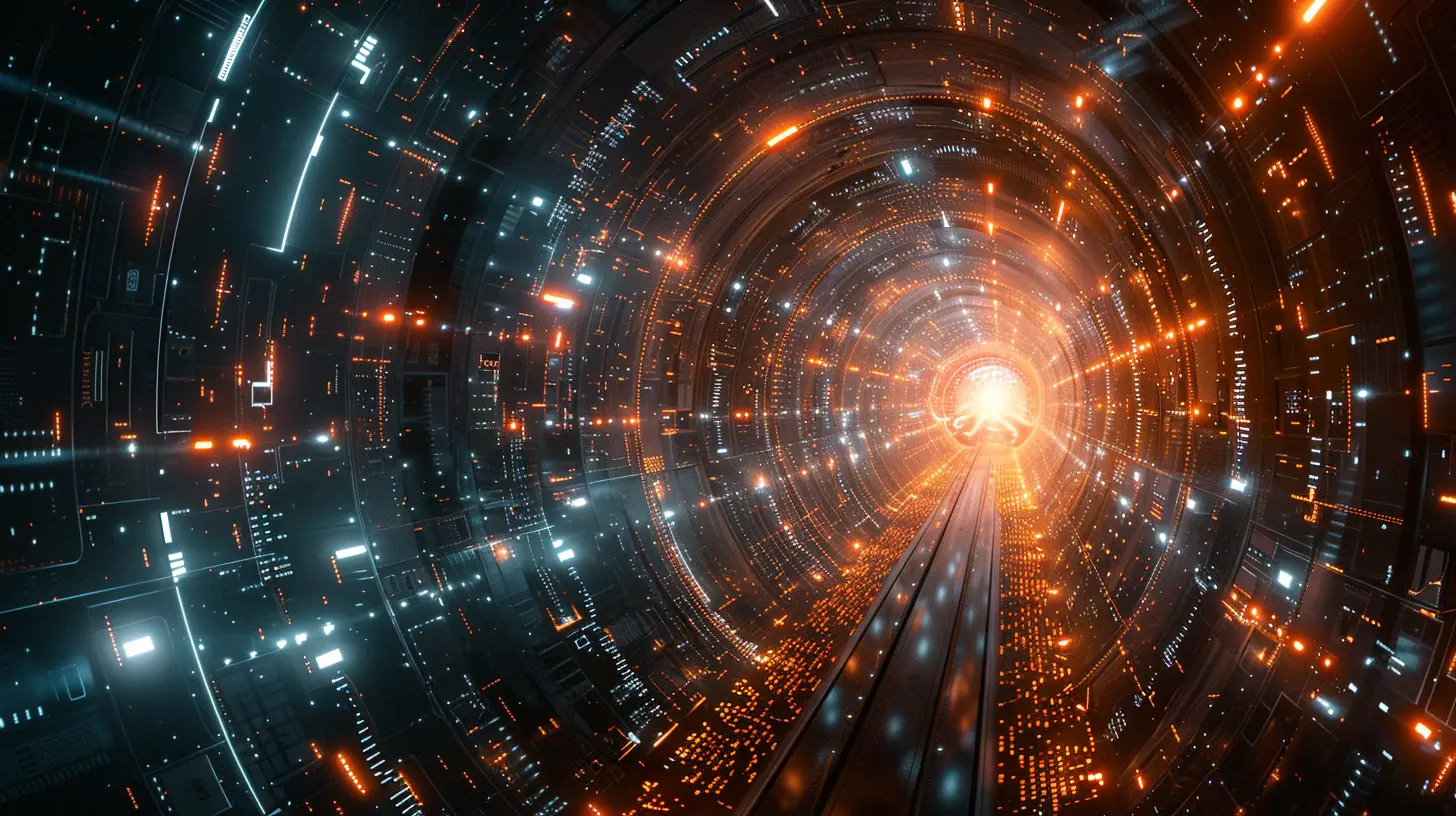The Future of Programming: Quantum Computing
5 October 2025
Technology never stands still. From the first computers that filled entire rooms to today’s pocket-sized powerhouses, we’ve come a long way. But the next big leap? It’s not just faster chips or better AI—it’s quantum computing. And if you think programming is complex now, just wait until quantum mechanics gets involved!
Quantum computing isn’t just an upgrade to classical computing. It’s a complete game-changer. Traditional bits (0s and 1s) are making room for qubits, and with them, a level of computing power we’ve never seen before. But what does this mean for the future of programming? Let’s dive in. 
Understanding Quantum Computing (Without the Headache)
Alright, let’s break this down without putting you to sleep. Classical computers use bits, which can be either a 0 or a 1. That’s how all of your apps, games, and software run. Simple, right?Quantum computers, on the other hand, use qubits. And here’s where things get wild—qubits can be both 0 and 1 at the same time (thanks to a mind-bending property called superposition). And there's more! Qubits can also be entangled, meaning the state of one qubit is directly related to another, no matter the distance between them.
Imagine trying to find a needle in a haystack. A classical computer goes through each piece of hay one by one. A quantum computer? It looks at every piece simultaneously. That’s the kind of speed and power we’re talking about. 
How Quantum Computing Will Change Programming
So, what does this mean for developers? Does it mean we all have to throw away everything we know? Not exactly. But it does mean programming is about to get way more interesting.1. New Programming Paradigms
Forget JavaScript and Python as you know them. Quantum computing requires different ways of thinking. Quantum programming languages like:- Q
(Microsoft)
- Quipper
- Qiskit (IBM)
These languages allow developers to write quantum algorithms, but they don’t work like your typical Python script. Instead of writing step-by-step instructions, programmers will need to consider quantum principles like probability and parallelism.
It’s like moving from riding a bicycle to piloting a spaceship—same concept, but wildly different mechanics.
2. Exponential Speed in Problem Solving
Some problems take classical computers millions of years to solve. Quantum computing could reduce that to minutes—or even seconds.Areas that will benefit the most include:
- Cybersecurity (breaking and creating unbreakable encryption)
- Drug Discovery (simulating molecules in ways we never could before)
- Climate Modeling (more accurately predicting extreme weather)
- Artificial Intelligence (faster machine learning training models)
Imagine AI models that train in seconds or security systems that are truly unhackable. That’s the power quantum computing brings to the table.
3. A Shift in Problem-Solving Mindset
With great power comes… a whole new way of thinking.Right now, we break problems into smaller steps and execute them one at a time. But with quantum computing, we’ll have to design parallel problem-solving algorithms that leverage superposition and entanglement.
It’s like cooking all your favorite meals at the same time instead of one dish after another. Sounds unreal? It’s coming sooner than we think. 
Challenges in Quantum Programming
Of course, it’s not all sunshine and rainbows. Quantum computing is still in its infancy, and it comes with some serious hurdles.1. Hardware Limitations
Quantum computers are delicate. They require extremely low temperatures (close to absolute zero) to function correctly. Even slight disturbances like heat or electromagnetic waves can mess up calculations. Right now, only tech giants like Google, IBM, and D-Wave have access to this kind of hardware.2. Lack of Skilled Developers
Let’s be honest—most developers are still trying to master JavaScript callbacks, let alone quantum mechanics. The talent pool for quantum programming is tiny, and universities are only just starting to offer courses in it.If you’re a developer, this is great news! Learning quantum programming now could set you up for some of the best jobs in the future.
3. The Cost Factor
We’re talking about machines that cost millions of dollars to build and maintain. So don’t expect a quantum laptop anytime soon. But companies like Amazon and IBM are already offering quantum cloud computing, making the technology more accessible without needing your own quantum lab.The Future: What’s Next?
The next decade will be crucial for quantum computing. Here’s what we can expect:1. More Accessible Quantum Cloud Computing
Companies like Google, IBM, and Amazon are making quantum computing available through the cloud, so developers can experiment without needing billion-dollar hardware.2. Mainstream Quantum Programming Languages
Just like Python made AI accessible, we’ll likely see user-friendly quantum programming languages emerge. Maybe we’ll even have Quantum Python someday!3. Quantum + AI Integration
AI and machine learning will get a huge boost from quantum computing. Faster processing will lead to more intelligent systems, revolutionizing automation, healthcare, and more.4. Breakthroughs in Cybersecurity
Quantum computers will eventually make current encryption useless—which means we’ll need quantum-level encryption to stay secure. Governments and tech companies are already working on this.5. New Job Roles in Tech
If you're thinking about future-proofing your career, quantum programming, engineering, and security roles are about to be in hot demand.Should You Start Learning Quantum Programming?
If you’re a developer, you might be wondering—should I start learning quantum programming today?The answer: It depends.
Quantum computing isn't replacing classical computing anytime soon. But if you love being ahead of the curve, now is the perfect time to dip your toes in. Big tech companies are investing heavily in quantum research, which means jobs and opportunities will explode in the coming years.
You don’t need a PhD in physics to start. There are beginner-friendly resources, like IBM’s Qiskit tutorials and Microsoft’s Quantum Development Kit, that make learning more approachable.
Final Thoughts
Quantum computing isn’t just another tech trend—it’s the future. It will redefine what computers can do, how software is built, and the limits of human knowledge.Sure, it’s complicated. And yes, there are major challenges. But every revolution starts with bold ideas—and quantum computing is as bold as it gets.
So, whether you’re a developer, a tech enthusiast, or just a curious mind, one thing is certain: The future of programming is about to get very, very interesting.
all images in this post were generated using AI tools
Category:
ProgrammingAuthor:

Adeline Taylor
Discussion
rate this article
1 comments
Allegra McGinnis
Quantum computing: where bugs might just be superpositions! Get ready for a programming rollercoaster ride!
October 21, 2025 at 11:25 AM

Adeline Taylor
Absolutely! Embracing quantum superpositions will definitely challenge our debugging skills and redefine programming paradigms. Exciting times ahead!


